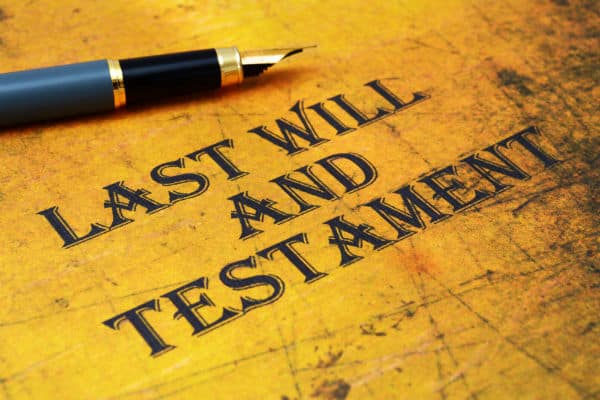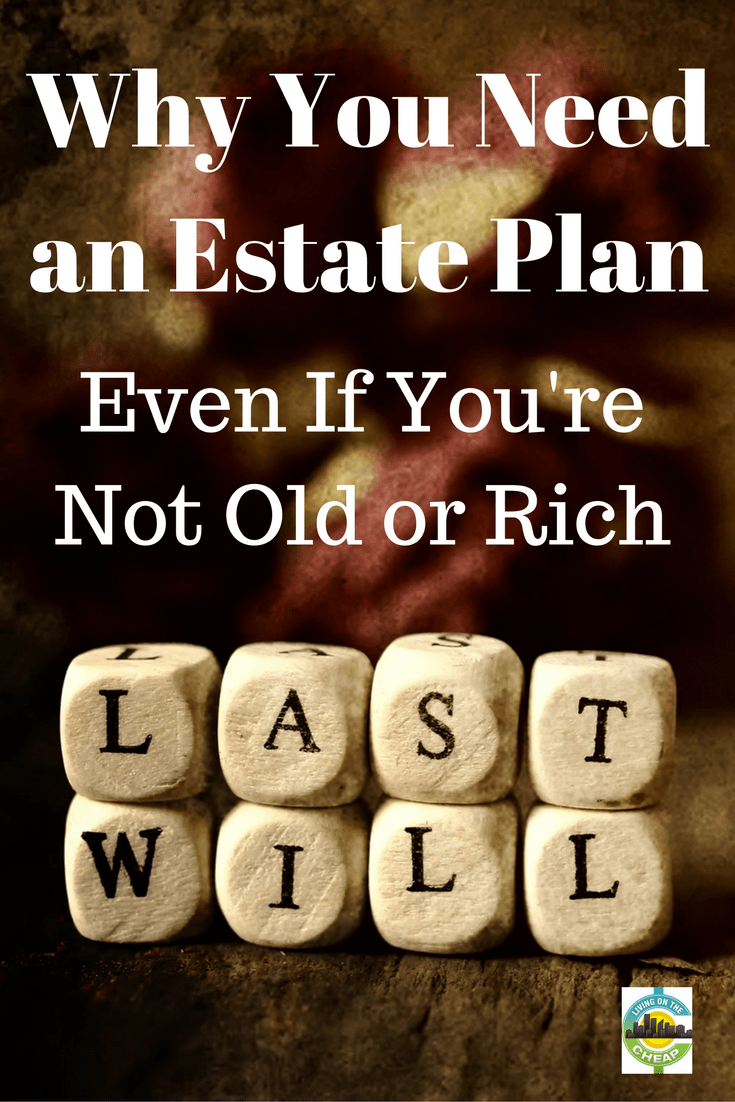Estate planning is only for old, rich people. Estate planning is scary. Estate planning is so easy you can do it yourself. Wrong. Wrong. And, so wrong, unless you want your family duking it out in front of Judge Judy.

Simply put: An estate plan is a set of legal documents that allows you to leave instructions regarding your care if you can’t speak for yourself and distribution of your assets if you die. That might include a will, trust, living will, health care proxy, even guardianship of children or pets or funeral instructions.
“It says these are the people in my world who I want to take on a role. This is who is in charge. And this is what I want to happen,” explains Denver attorney Leia Ursery, an adjunct professor at University of Denver College of Law. Instead of being scary, estate planning is actually empowering.
Most of us assume you only need an estate plan if you have money. But an “estate” is basically anything you own. You may be single, married, divorced, remarried, an only child, one of six siblings, have a life partner or children.
Sure, individual states have laws that govern who gets what, if you become incapacitated or die. But maybe your parents don’t have a clue whether you want to kept alive by machines or you don’t want your first-grader to live with your no-account sister.
At any age
Anyone 18 or older should consider an estate plan. Even a 20-something might have an accident and need to keep bills paid for a period of time — or worse, become disabled and face end-of-life decisions, says Jean Stewart, a former Denver probate court judge now in private practice. “As a judge, I wanted to know the person’s wishes, not just the opinion or friends and family.” If something happens, who do you want making decisions on your behalf? A simple medical directive is easy to prepare and helps avoid a messy ordeal.
Even if you are living on a shoestring budget, don’t assume you own nothing of worth. Millennials in the workforce may have company benefits such as life insurance or retirement accounts that come into play when they die.
Mid-career adults share the same concerns, but may have children. They want to make provisions for the flotsam and jetsam accumulated in life: home, savings, vacation property, even a car. Says attorney Diana Payne, “If you have children, who takes care of them and manages the money they inherit from you? To what age? Unfettered access to money in the hands of even a reasonably responsible young person is setting them up for disaster.”
Baby boomers and the WWII generation may not have to worry about who raises their toddlers, but with age comes more assets and other concerns. At this point you may want to set up a trust to ensure that, if you become ill, you aren’t financially exploited and that your savings are applied to any required care.
Getting started
Estate planning starts with a frank discussion between client and planner. Finding a good attorney is no different than finding a reputable plumber. Ask friends, family and co-workers for suggestions. Try your local bar association’s website for basic information along with lawyers who specialize in estate planning. Or try the National Association of Estate Planners & Counsels and American College of Trust & Estate Counsel.
Most estate planners offer a free initial consultation. Say to the attorney, “I would like to meet you to discuss how you work and how you will bill me.” Be sure to ask for references and to interview several planners.
To what degree is the person taking the time to get to know your situation? “Your estate planner needs to be someone you trust to tell your dirty secrets,” says Payne. “They need to understand why you are making the choices. Maybe you have a brother who is an alcoholic and who can’t handle money or there’s another child from a prior marriage. If we know the back story, then we can make your case should someone contest your will.”
You can write your own estate plan, but experts recommend against it. Estate planning is state-specific. That means each state has laws that outline how assets are disposed of at death and how citizens deal with their affairs. While websites sell low-cost estate planning forms, they are designed to be one size fits all. “Based on my time on the bench, half of the disputes in litigation are because of do-it-yourself estate planning,” says Stewart.
Before you visit an estate planner, prepare a balance sheet of your assets and liabilities. If you use a computer, make a list of all your accounts along with passwords so those that need access can have it. Then, see an estate planner and write it all down. Says Payne, “We don’t have a crystal ball, but we can sometimes predict some of the future.”
Don’t be fooled
Because estate planning is for all ages, it creates a limitless pool of victims ripe for fraudsters, says Eido Walny, an accredited estate planning law specialist in Fox Point, Wis. “You would spend time researching the best car to buy. Put the same effort into finding an estate planner,” he says.
Here are some tips to avoid getting scammed.
- Walk away from high-pressure tactics. There’s nothing wrong with an attorney trying to market his business, says Walny, but does he pitch fear or say awful things will happen? Is the underlying current to sell you something?
- Don’t sign anything on the spot. If you feel intimidated, make up any excuse to get away. Tell the planner you have to talk with your family first or you are late for another appointment and will be in touch.
- Watch for people who want your personal financial information up front. That may just be a ruse to steal your identity or gain access to your bank accounts.
- Does the planner want to set himself up as your trustee, put his name on a life insurance policy or otherwise benefit from your estate? Those are all red flags.
- Not every “Free Lunch & Learn” estate planning workshop is a scam. Use the Internet to look up the people who are involved. (The easiest way is to type in the name + state + complaint). Are they generalists or specialists? Martindale-Hubbell rates attorneys. Your state Supreme Court may note any disciplinary history.

